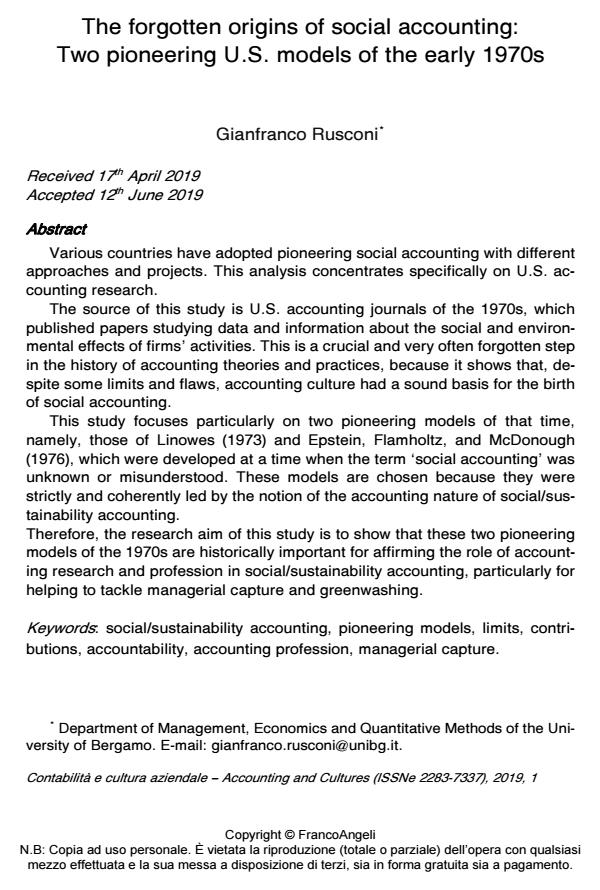The forgotten origins of social accounting: Two pioneering U.S. models of the early 1970s
Journal title CONTABILITÀ E CULTURA AZIENDALE
Author/s Gianfranco Rusconi
Publishing Year 2019 Issue 2019/1
Language English Pages 24 P. 61-84 File size 266 KB
DOI 10.3280/CCA2019-001004
DOI is like a bar code for intellectual property: to have more infomation
click here
Below, you can see the article first page
If you want to buy this article in PDF format, you can do it, following the instructions to buy download credits

FrancoAngeli is member of Publishers International Linking Association, Inc (PILA), a not-for-profit association which run the CrossRef service enabling links to and from online scholarly content.
Various countries have adopted pioneering social accounting with different approaches and projects. This analysis concentrates specifically on U.S. account-ing research. The source of this study is U.S. accounting journals of the 1970s, which pub-lished papers studying data and information about the social and environmental effects of firms’ activities. This is a crucial and very often forgotten step in the his-tory of accounting theories and practices, because it shows that, despite some limits and flaws, accounting culture had a sound basis for the birth of social ac-counting. This study focuses particularly on two pioneering models of that time, namely, those of Linowes (1973) and Epstein, Flamholtz, and McDonough (1976), which were developed at a time when the term ‘social accounting’ was unknown or misunderstood. These models are chosen because they were strictly and coher-ently led by the notion of the accounting nature of social/sustainability accounting. Therefore, the research aim of this study is to show that these two pioneering models of the 1970s are historically important for affirming the role of accounting research and profession in social/sustainability accounting, particularly for helping to tackle managerial capture and greenwashing.
Keywords: Social/sustainability accounting, pioneering models, limits, contribu-tions, accountability, accounting profession, managerial capture.
Gianfranco Rusconi, The forgotten origins of social accounting: Two pioneering U.S. models of the early 1970s in "CONTABILITÀ E CULTURA AZIENDALE" 1/2019, pp 61-84, DOI: 10.3280/CCA2019-001004